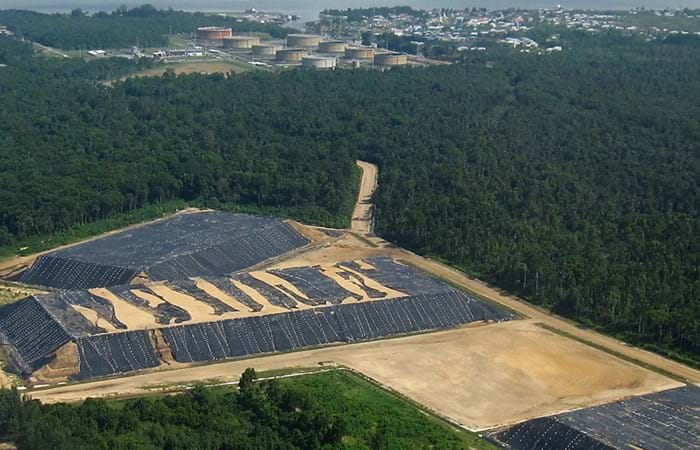The Brass LNG Project’s objective is to construct a LNG Complex on Brass Island, Bayelsa State, Nigeria, and in so doing, develop Nigeria’s abundant gas resources, reduce the adverse effect of gas flaring on the environment, and provide social-economic benefits to the local and wider Nigerian communities. The LNG complex will be designed to produce approximately 10 million tons per annum (MTPA) of LNG, as well as LPG and Residual NGL products.
The Pioneer Camp was designed to be fully self-supporting. Apart from accommodation units it consists of offices, catering, laundry and water treatment facilities. For the power supply three generators were supplied and installed. Furthermore, provisions were made for waste water and sewage treatment and for waste disposal an incinerator was supplied and installed.
Approximately 1,5 million m3 of sand was excavated and transported for the construction of the three pre-loads, which were elevated to approximately 20 meter height. The required sand was excavated from an onshore borrow area. Over 30 heavy duty dry earth moving machines were brought to site to execute the works, such as excavators, bulldozers, vibro roller compactors, articulated dump trucks, etc.
